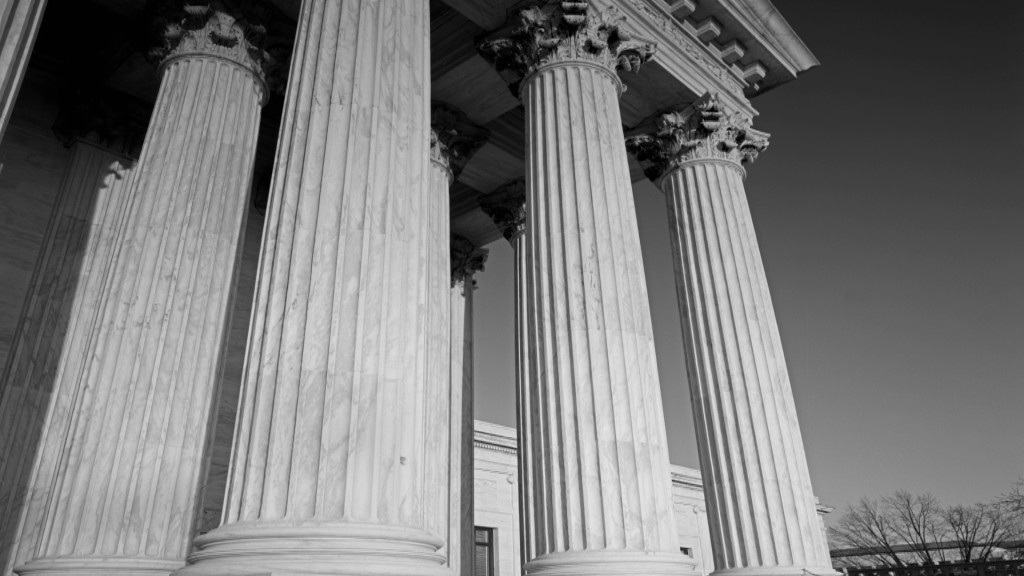What You Need to Read on Money & Politics

October 30, 2012
Share
Two years ago, the Supreme Court changed the landscape of campaign finance with a controversial decision in a case known as Citizens United. The ruling allowed corporations and unions to spend unlimited amounts of money in campaigns, so long as it was going to independent outside groups.
This year’s election is the most expensive in history, with outside groups calling the shots in political races across the country. These readings and interactive features probe how the ruling has transformed money and politics in America.

The New Yorker’s Jeffrey Toobin explores how Supreme Court Chief Justice John Roberts artfully “orchestrated” the 2009 Citizens United decision, transforming the limited nature of the original case into a vehicle for rewriting decades of constitutional law. “As the Chief Justice chose how broadly to change the law in this area,” Toobin writes, “the real question for him, it seems, was how much he wanted to help the Republican Party. Roberts’s choice was: a lot.”

WBEZ’s This American Life begins with a controversial voicemail in which an elected official directly asks a lobbyist for money. How common are these requests and where does the money go? The episode probes what the money that’s flowing into American politics is actually buying, and why efforts to reform campaign finance are failing.

ProPublica’s Kim Barker investigates how 501(c)(4)s – nonprofits that enjoy tax-exempt status for promoting “social welfare” have emerged as the main conduit for anonymous big-money contributions in political races. Unlike SuperPACs, 501(c)(4)s don’t have to disclose their donors. And although they are allowed to partake in some political activity, they are required to be primarily engaged in social welfare. Barker’s investigation finds that dozens of these groups “do little or nothing to justify the subsidies they receive from taxpayers” and are using a range of tactics to underreport their political activities to the IRS. How do they funnel money into campaigns? And why are efforts for more transparency falling short?

The Atlantic‘s James Bennet profiles powerhouse conservative lawyer Jim Bopp Jr. He’s argued some of the most prominent legal cases successfully challenging campaign finance restrictions in the country, including the Supreme Court case earlier this year that reaffirmed Citizens United. “He sees some cost — some loss of free speech, some constraint on a citizen’s freedom of political action — whenever the government steps into the picture,” writes Bennet. “That cost simply isn’t justified, he says, when it comes out of the hide of groups pushing specific positions, which is what the mysterious nonprofits, like the old soft-money organizations, are supposed to do.”

NPR’s interactive timeline charts the key players, loopholes, controversies and efforts to reform campaign finance laws over the last century.

Using data from the Federal Election Commission, NPR charts the contributions of more than two dozen people or groups that have donated at least $1 million each to SuperPACs.

Outside groups have dropped almost $200 million on this year’s Senate races. The Sunlight Foundation maps outside money going into each state and finds seven striking takeaways in the data.

It can be hard to trace all the money being spent on political ads airing on television stations across the country. The Sunlight Foundation has organized and made available information about the groups buying those ads. You can sort it by state and individual television market or search by date.

“Voters haven’t had a clue who is behind American Tradition Partnership,” writes Paul Abowd for the Center for Public Integrity. “And that’s just the way the secretive nonprofit wants it.” Formerly known as Western Tradition Partnership, the group has been pushing to strike down many of Montana’s strict campaign finance laws. In this investigation, CPI identifies the man who ATP’s records indicate is the organization’s founding donor — Jake Jabs, the owner of Colorado’s largest furniture chain — and uncovers affiliations with national tea party groups funded by the conservative billionaire Koch brothers. Jabs denies ever hearing of the group, telling FRONTLINE, “I think they just grabbed my name out of a hat to forward their agenda.”
Dig Deeper
Learn more about campaign finance in these portals on money and politcs.

Our partner Marketplace‘s portal on Big Money 2012.

A portal of ProPublica’s data and investigative reporting on campaign and PAC spending, political ads and dark money in this year’s election.

The Center for Public Integrity tracks PACs and the sources of money for shadowy political organizations.

The Sunlight Foundation tracks the expenditures of SuperPACs that have raised or spent at least $10,000 since the beginning of 2011.

NPR’s portal on money and politics in the 2012 election.
Related Documentaries
Latest Documentaries
Related Stories
Related Stories
Explore
Policies
Teacher Center
Funding for FRONTLINE is provided through the support of PBS viewers and by the Corporation for Public Broadcasting, with major support from Ford Foundation. Additional funding is provided the Abrams Foundation, Park Foundation, John D. and Catherine T. MacArthur Foundation, Heising-Simons Foundation, and the FRONTLINE Trust, with major support from Jon and Jo Ann Hagler on behalf of the Jon L. Hagler Foundation, and additional support from Koo and Patricia Yuen. FRONTLINE is a registered trademark of WGBH Educational Foundation. Web Site Copyright ©1995-2025 WGBH Educational Foundation. PBS is a 501(c)(3) not-for-profit organization.





















